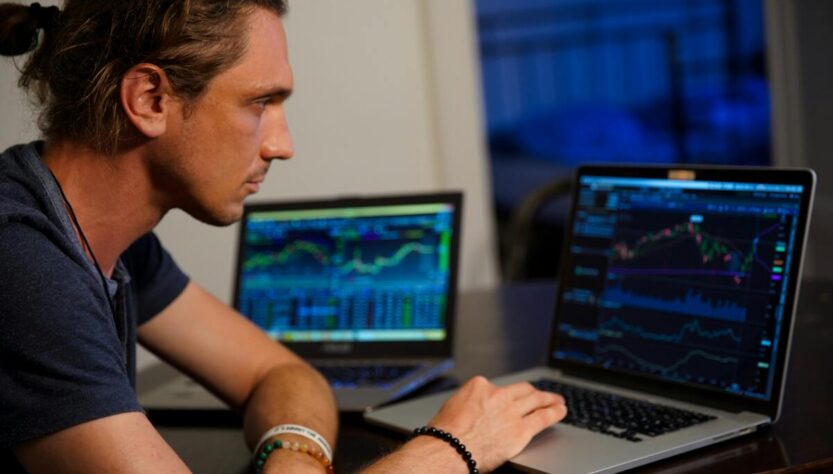Forex trading involves making an investment decision based on fluctuating currency price movements to generate profits. Learn the fundamentals of forex trading, including its markets, trading strategies, and key terms such as “pips.” The Amazing fact about forex robot.
Understanding the forex market and what factors influence currency pairs is an integral step toward protecting your capital and making sound decisions. Formulating a trading plan can help you stay disciplined and make wise choices.
Learn the Basics
Forex trading has quickly become an attractive means for people to make extra money either as part of their work or full-time careers. Yet learning how to trade forex successfully takes both patience and dedication.
Familiarizing yourself with the market is the first step in becoming a Forex trader. Forex (foreign exchange market) is one of the world’s largest financial exchanges, with daily transactions exceeding $5 trillion.
Knowledge is power for new traders, as gaining familiarity with the market allows them to see how prices move and develop an understanding of risk management strategies. In order to become a profitable trader, novice traders must understand both the fundamentals and proper use of a trading platform.
Once you understand the fundamentals of trading, it is time to practice with a demo account. This provides beginners with a great way to become acquainted with trading dynamics while getting acquainted with their trading psychology without risking real funds.
Demo trading provides beginners with an ideal opportunity to practice different strategies. Everyone’s trading style varies, so experiment with various techniques until you find what works for you. When making the switch from demo to live trading, always invest only with money that you can afford to lose—this will prevent costly errors from costing your trading balance dearly.
Choose a Broker
As a beginner trader, you must select a broker that provides responsive and effective customer support. A multilingual team that can address issues related to deposits/withdrawals and manage accounts will likely be ideal. In addition to finding such a broker, make sure it also features a reliable trading platform to ensure a seamless trading experience.
Make sure that your broker abides by stringent national and international regulatory bodies’ regulations to avoid brokers engaging in fraudulent activity and ensure your funds remain safe. This will give you peace of mind that they’re safe.
Another factor when selecting a broker is their range of trading instruments. Aim for an international forex broker offering major currency pairs, minor pairs, exotic ones, commodities, and indices, as these provide more opportunities to expand your portfolio.
Look for a forex broker that provides demo accounts. Demo accounts allow traders to practice trading actual market conditions with virtual money in a risk-free environment before investing natural capital. In addition to demo accounts, some forex brokers also offer cent accounts, which measure balances in cents rather than dollars; these cent accounts are ideal for novice traders with limited capital who wish to test out strategies.
Open a Demo Account
Demo trading can provide newcomers to forex an invaluable opportunity to learn the ropes without risking real money. Furthermore, it helps quicken the development of experience and insights that would otherwise take years of practice.
As soon as you open a demo account on a forex broker’s platform, virtual money will be provided for conducting mock trades in any market you select—similar to playing Monopoly, where all earnings and losses are entirely fictitious.
Practice trading strategies isn’t the only benefit of demo accounts; they also serve as an opportunity to familiarize yourself with your platform and its various features. Some brokers provide their own proprietary platforms, while others utilize popular MetaTrader software; you can check all these out free through demo accounts.
Keep this in mind: you should only trade on a live account once you’ve established a profitable system that suits your trading style and needs. This requires hard work, dedication, and patience, as well as the ability to control your emotions when winning or losing trades. This ability separates profitable traders from losers—without it, there will never be profitable trading experiences!
Start Trading
Beginner traders may find the complexities of the Forex market intimidating, but having an understanding of its fundamentals will help you avoid costly errors that exceed budgetary allowances.
Opening a demo account with your chosen broker is the first step in preparing for trading. This will give you an opportunity to familiarize yourself with their platform and develop a trading strategy. A good practice would be to start with currency pairs that are relatively nonvolatile with broad media coverage so that you can easily follow and analyze price movements, using line charts for this analysis.
Once you feel confident with your demo account and trading strategy and have identified one that suits you, it is time to move on to live trading accounts and start actual trading. In order to make consistent profit from actual trading accounts, you must adhere to a trading plan, which helps prevent emotional trading, predetermine entry and exit points, and manage risk effectively. Failing to do so is one of the primary causes of novice traders losing money.
Trading in the Forex market involves buying or selling currency pairs at current market prices. When purchasing pairs, investors hope their value will increase and profit from any difference between the purchase price and the sale price. Conversely, selling them may allow you to repurchase them at lower costs later and thus make additional profits.
